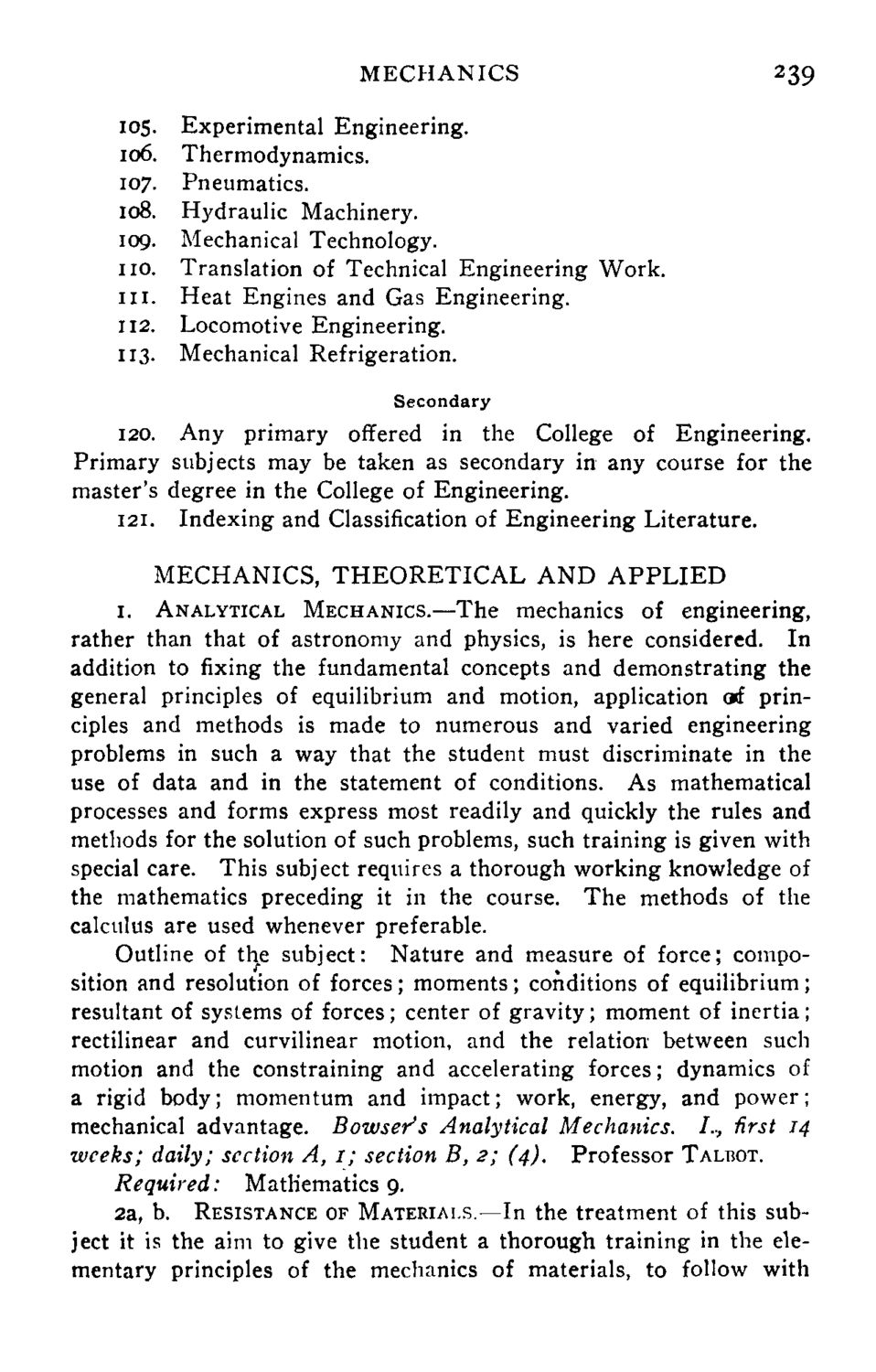Caption: Course Catalog - 1899-1900
This is a reduced-resolution page image for fast online browsing.

EXTRACTED TEXT FROM PAGE:
MECHANICS 105. 106. 107. 108. 109. no. 111. 112. 113. Experimental Engineering. Thermodynamics. Pneumatics. Hydraulic Machinery. Mechanical Technology. Translation of Technical Engineering Work. Heat Engines and Gas Engineering. Locomotive Engineering. Mechanical Refrigeration. 239 120. Primary master's 121. Secondary Any primary offered in the College of Engineering. subjects may be taken as secondary in any course for the degree in the College of Engineering. Indexing and Classification of Engineering Literature. MECHANICS, THEORETICAL AND A P P L I E D 1. ANALYTICAL MECHANICS.—The mechanics of engineering, rather than that of astronomy and physics, is here considered. In addition to fixing the fundamental concepts and demonstrating the general principles of equilibrium and motion, application «f principles and methods is made to numerous and varied engineering problems in such a way that the student must discriminate in the use of data and in the statement of conditions. As mathematical processes and forms express most readily and quickly the rules and methods for the solution of such problems, such training is given with special care. This subject requires a thorough working knowledge of the mathematics preceding it in the course. The methods of the calculus are used whenever preferable. Outline of the subject: Nature and measure of force; composition and resolution of forces; moments; conditions of equilibrium; resultant of systems of forces; center of gravity; moment of inertia; rectilinear and curvilinear motion, and the relation between such motion and the constraining and accelerating forces; dynamics of a rigid body; momentum and impact; work, energy, and power; mechanical advantage. Bowser's Analytical Mechanics. /., first 14 weeks; daily; section A, 1; section B, 2; (4). Professor TALBOT. Required: Mathematics 9. 2a, b. RESISTANCE OF MATERIALS.—In the treatment of this sub- ject it is the aim to give the student a thorough training in the elementary principles of the mechanics of materials, to follow with
|